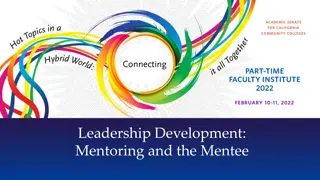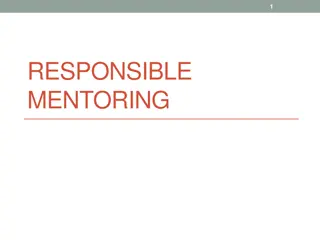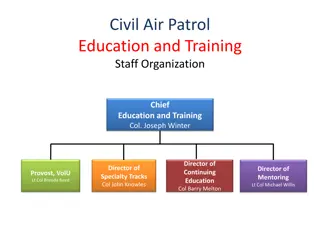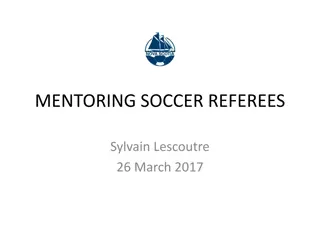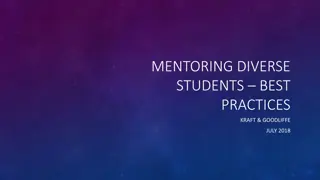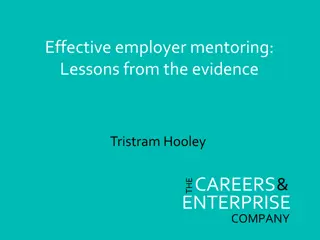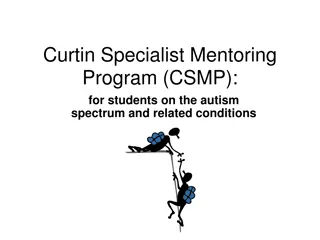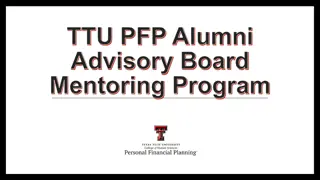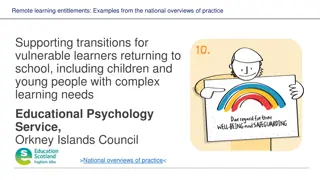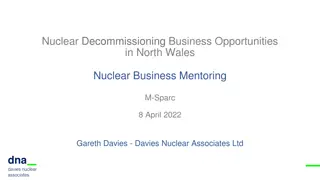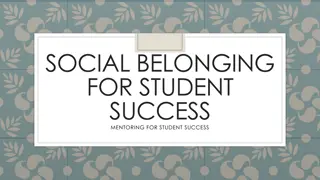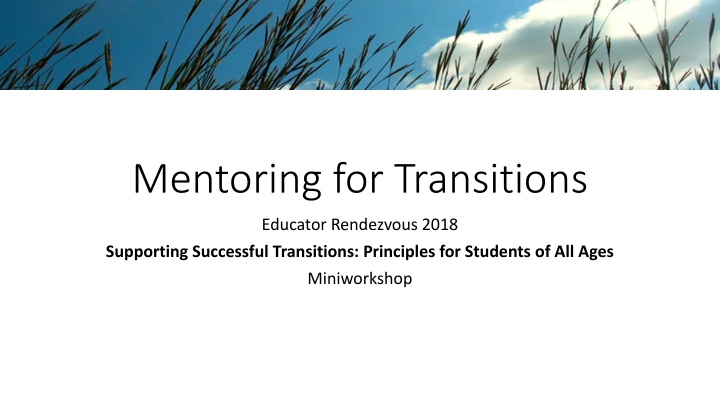
Supporting Successful Transitions: Principles for Students of All Ages
Explore the key principles for successful transitions in education, focusing on mentoring, academic advising, and factors impacting student success. Discover how mentoring and advising play crucial roles in fostering student success and retention across various academic pathways.
Download Presentation

Please find below an Image/Link to download the presentation.
The content on the website is provided AS IS for your information and personal use only. It may not be sold, licensed, or shared on other websites without obtaining consent from the author. If you encounter any issues during the download, it is possible that the publisher has removed the file from their server.
You are allowed to download the files provided on this website for personal or commercial use, subject to the condition that they are used lawfully. All files are the property of their respective owners.
The content on the website is provided AS IS for your information and personal use only. It may not be sold, licensed, or shared on other websites without obtaining consent from the author.
E N D
Presentation Transcript
Mentoring for Transitions Educator Rendezvous 2018 Supporting Successful Transitions: Principles for Students of All Ages Miniworkshop
Literature Review- URM STEM transfer students retention and success Vertical Transfer Pathways Environmental Factors Program Designs: Research & Mentoring URM STEM Transfer students Retention and Success Demographic & Academic Factors Gender, Race, Pre- college experience, & college experience Self-efficacy & Scientific Identity Cognitive Factors Yue Zhang University of Minnesota
Significant factors impacting perceived success Positive Negative Academic consequences of transfer Finding paid positions on campus Mutual respect and diversity of peers in campus community Unexpected costs at transfer institution or residency requiements Competing demands of family responsibility Yue Zhang University of Minnesota
Village of Mentors Academic advisors Mechanics of transfer and navigating requirements Encouragement and confidence building Peer mentors, role models Examples of success Sense of belonging following transition Emotional support Faculty advisors Future plans Goal setting Navigating the major or the discipline
"Mentoring and advising are crucial. Robust models must be scalable and not dependent upon a single individual. They must allow us to capitalize more effectively on the relationships that individuals have developed and the cultural competence developed in different parts of our community. Success will also require development of more cultural competence on the part of advisers, mentors, and faculty." Workshop Synthesis, Broadening Access to the Earth and Environmental Sciences, February 2014


